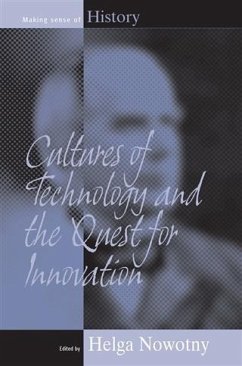
All Tomorrow's Cultures (eBook, PDF)
Anthropological Engagements with the Future
Versandkostenfrei!
Sofort per Download lieferbar
101,95 €
inkl. MwSt.
Weitere Ausgaben:

PAYBACK Punkte
51 °P sammeln!
How will we live in the future? Are we moving towards global homogeneity? Will the world succumb to the global spread of fast food and Hollywood movies? Or are there other possibilities? In this book, Samuel Collins argues not only for the importance of the future of culture, but also stresses its centrality in anthropological thought over the last century. Beginning with 19th-century anthropology and continuing today in the work of anthropologies of emergent sciences, anthropologists have not only used their knowledge of present cultural configurations to speculate on future culture but have ...
How will we live in the future? Are we moving towards global homogeneity? Will the world succumb to the global spread of fast food and Hollywood movies? Or are there other possibilities? In this book, Samuel Collins argues not only for the importance of the future of culture, but also stresses its centrality in anthropological thought over the last century. Beginning with 19th-century anthropology and continuing today in the work of anthropologies of emergent sciences, anthropologists have not only used their knowledge of present cultural configurations to speculate on future culture but have also used their assumptions about the future of culture to understand the present.
Dieser Download kann aus rechtlichen Gründen nur mit Rechnungsadresse in A, B, BG, CY, CZ, D, DK, EW, E, FIN, F, GR, HR, H, IRL, I, LT, L, LR, M, NL, PL, P, R, S, SLO, SK ausgeliefert werden.













